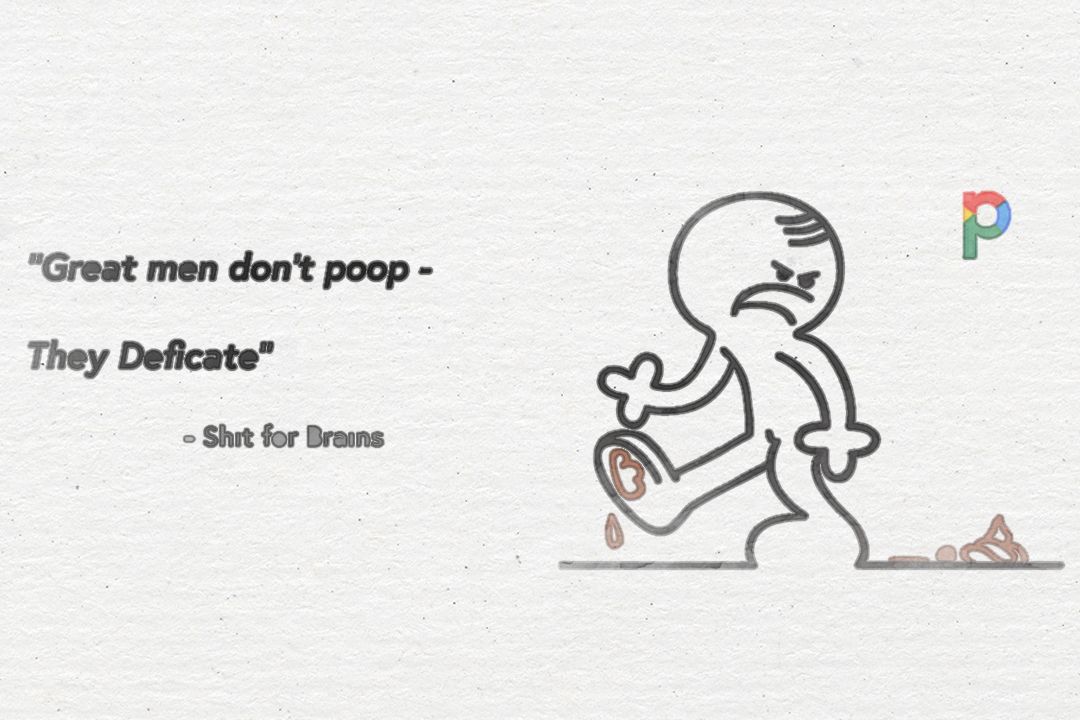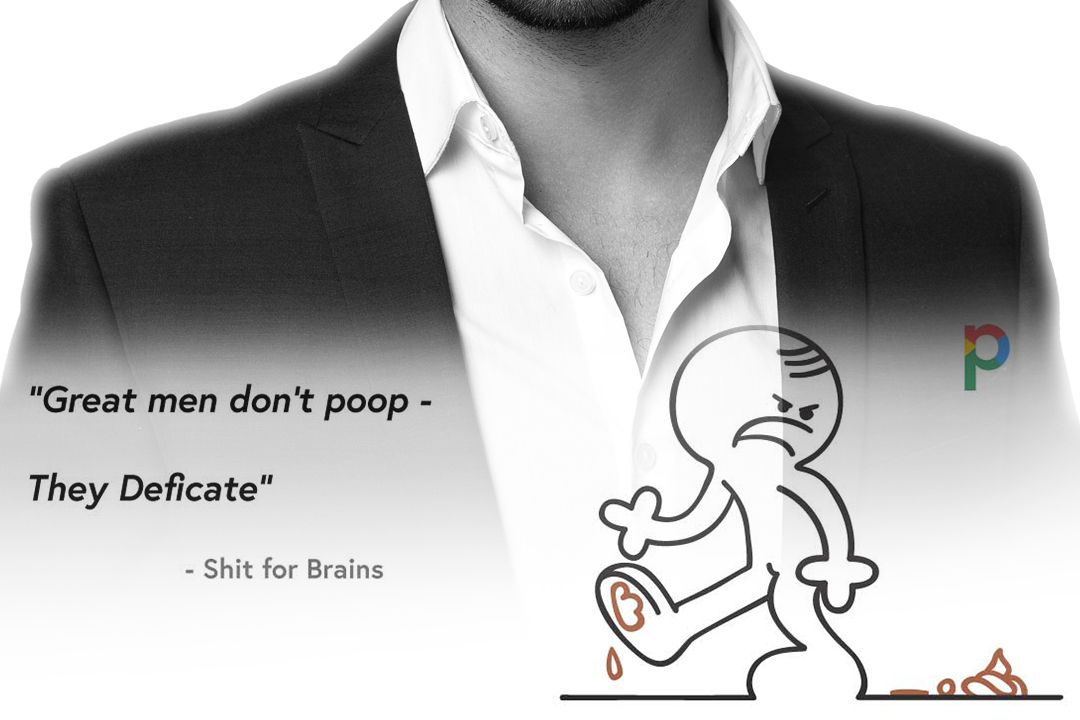Poo On Your Shoe!

Hey Man, You Have Some Poo on Your Shoe
Once upon a time, a photographer named Max lived in the quaint town of Veritopia, where time seemed to move at its own unhurried pace. Max had a peculiar talent for capturing the raw essence of life in his photographs, freezing moments in time that told stories of joy, sorrow, and everything in between.
One fateful day, as the sun cast a warm glow over the cobblestone streets of Veritopia, Max set out on his usual quest to document the town's soul. Armed with his trusty camera, Max meandered through the lively market square, where vendors peddled their wares and children played in the fountain.
Amid the bustling crowd, Max's keen eye caught a glimpse of a peculiar scene. It was a moment that would serve as the nucleus for a photographic journey that would weave together the threads of reality, memory, and unexpected humour.
In the first frame, Max immortalized the unfiltered reality of life. The streets teemed with activity, each person immersed in their world, navigating the intricacies of daily existence. The symphony of footsteps, laughter, and distant conversations formed the background music to the visual tapestry of Veritopia.
Amidst the vibrant canvas of life, an unsuspecting man strolled along, lost in his thoughts. Unbeknownst to him, the threads of fate were already weaving a narrative that would soon unfold in Max's camera lens.
As the scene transitioned to the second frame, the colours of reality began to fade, much like memories that lost their sharpness with time. The once-vivid hues became soft and dreamlike, casting a nostalgic glow over the captured moments. Veritopia transformed into a realm where the boundaries between reality and memory blurred.
In this ethereal atmosphere, Max pondered the nature of memories. He thought about the quote:
The greatest and noblest pleasure thatdiscovering new truths, and the next is shaking men can have in this world is to discover new truths, and the next is to shake off old prejudices.
— Frederick the Great (1712-1786)
Perhaps memories, like truths, had the power to illuminate the path forward and free the mind from the shackles of preconceived notions.
As Max continued his journey through Veritopia, he couldn't shake the feeling that something extraordinary awaited him. Little did he know that the whims of fate were orchestrating a twist that would inject unexpected humour into his photographic odyssey.
The transition to the third frame marked the moment of revelation. Max transformed into a cartoon version of himself in a bizarre turn of events. Complete with an oversized camera slung around his neck and a perpetually quirky smile; the cartoon Max became the protagonist in a humorous subplot.
In this whimsical frame, Max, now a caricature of his authentic self, took an unsuspecting step and, to his horror, landed squarely in a pile of, well, let's call it "unexpected street art." The once carefree expression on his face morphed into one of utter dismay as the unseemly truth squished beneath his shoe.
At the peak of this comical misfortune, a wise older man approached Max with a twinkle in his eye. He chuckled at the absurdity of the situation and delivered the line that would echo through the various frames of Maxhotographic tale: "Hey, man, you have some poo on your shoe."
Max, initially mortified, couldn't suppress a laugh at the sheer ridiculousness of it all. The cartoon version of himself, now the unwitting star of his own comedy, had become a symbol of embracing life's imperfections with a good-natured spirit.
Seizing the opportunity for a philosophical exchange, the wise older man shared a profound truth:
A person may cause evil to others not only by his actions but by his inaction, and in either case, he is justly accountable to them for the injury
— John Stuart Mill (1806-1873)
As Max contemplated the words, he realized that even the most minor actions, such as stepping in poo, could bring unexpected joy and laughter to others.
Amidst the laughter and camaraderie, Max's mind delved into the essence of the photographic art form. He pondered the quote:
What we think, or what we know, or what we believe is, in the end, of little consequence. The only consequence is what we do.
— John Ruskin (1819-1900)
Each photograph, he realized, was not just a reflection of thoughts or beliefs but a tangible record of actions that spoke louder than words.
As Max continued his photographic journey through the whimsical streets of Veritopia, he marvelled at the intricacies of the human experience. The wise older man's words lingered in his mind:
The brain is wider than the sky.
— Emily Dickinson (1830-1886)
The vastness of human emotion, the intricate connections between individuals, and the unpredictable nature of life unfolded like an expansive canvas awaiting the strokes of his camera.
Amid this contemplative exploration, Max encountered moments that echoed the profound quote:
In my beginning is my end.
— T.S. Eliot (1888-1965)
Each ending marked the commencement of a new chapter, and every misstep led to unforeseen adventures. Life's unexpected turns, much like stepping into a pile of poo, became the colourful threads in the tapestry of his existence.
The townsfolk of Veritopia became unwitting spectators to Max's extraordinary photographic narrative. Like a magic wand, his camera lens transformed ordinary moments into exceptional stories that captured the essence of humour and the profound truths that unfolded when one embraced the messy, unpredictable journey.
And so, Max's photographic journey continued, with each frame immortalizing the beauty found in the ordinary and the humor discovered in unexpected mishaps. Veritopia, with its charming streets and vibrant characters, served as the ever-changing backdrop to Max's visual storytelling.
If you were to wander through the cobblestone streets of Veritopia and chance upon Max, you might hear the echo of the wise old man's chuckle and the timeless reminder, "Hey, man, you have some poo on your shoe." Little would you know that beneath the laughter and the seemingly trivial misadventure lay a profound tale of discovery, accountability, and the boundless beauty of the human experience.
What is a man? A miserable little pile of secrets.
— André Malraux (1901-1976)

The planksip Writers' Cooperative is proud to sponsor an exciting article rewriting competition where you can win over $750,000 in prize money.
Figures of Speech Collection Personified
Our editorial instructions for your contest submission are simple: incorporate the quotes and imagery from the above article into your submission.
What emerges is entirely up to you!
Winners receive $500 per winning entry multiplied by the article's featured quotes. Our largest prize is $8,000 for rewriting the following article;

At planksip, we believe in changing the way people engage; at least, that's the Idea (ἰδέα). By becoming a member of our thought-provoking community, you'll have the chance to win incredible prizes and access our extensive network of media outlets that will amplify your voice as a thought leader. Your membership truly matters!


